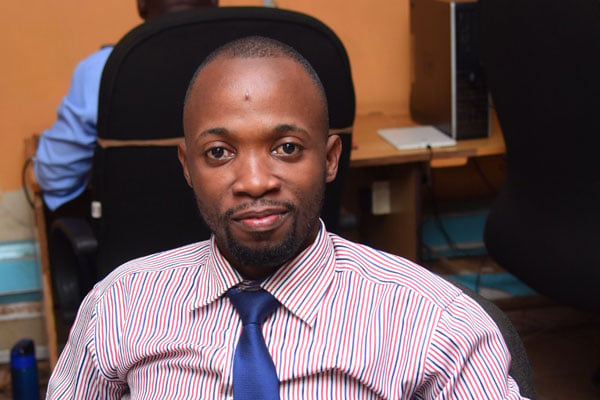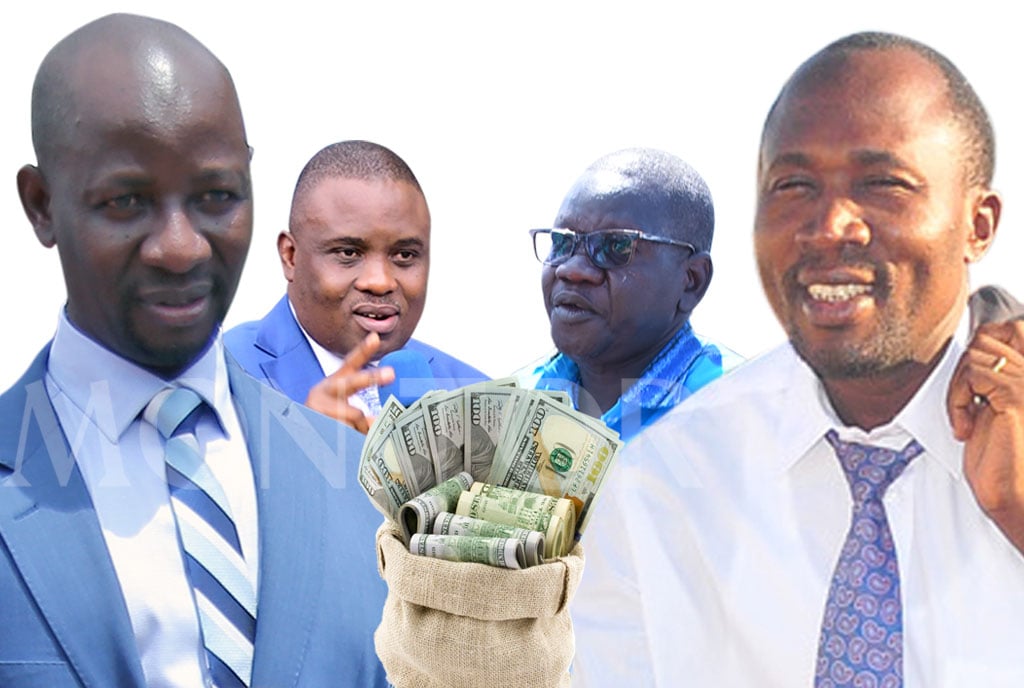Prime
Why FDC is fighting itself

Left to right: Forum for Democratic Change Secretary General Nathan Nandala Mafabi, party president Patrick Oboi Amuriat and party member Hassan Fungaroo during a press conference in Najjanankumbi, Kampala. PHOTO/MICHAEL KAKUMIRIZI
What you need to know:
- Separately, the Forum for Democratic Change (FDC) secretary general, Mr Nathan Nandala Mafabi yesterday committed to hold planned internal elections to choose village and parish leaders as scheduled on July 21 to 23.
- On Tuesday, party spokesman, Mr Ibrahim Ssemujju and Kampala lord mayor Erias Lukwago, who is FDC’s vice president for central region, had told a consultative meeting they unilaterally convened at Nsambya Sharing Hall in Kampala that those elections should be deferred until they resolve the ongoing wrangles.
A turf war over who wields the real power, and an overwhelming sense of betrayal regarding poor campaign finance support which has crippled the party, were yesterday trotted out as some of the main reasons for the ongoing unrest at the Forum for Democratic Change (FDC).
Party leaders sitting at opposite ends in the unfolding high-stakes contest also said the fight for the soul of what used to be Uganda’s most formidable political Opposition organisation is also being fuelled by the unsettled question of ‘defiance activism’ in the quest to unseat President Museveni.
These broad points of departure were outlined at parallel press conferences -- timed to take place almost simultaneously in Kampala – which were addressed by the leading players on each side of the dispute.
At one end, FDC founding president, retired army colonel Dr Kizza Besigye reminded the gathered media at his Katonga Road office that the troubles can be traced to 2011 when an ideological shift took place inside FDC following yet another disputed presidential election.
Dr Besigye, who denied that he is behind the current escalation in the in-fighting, called for a cooling-off period so that the opposing camps can talk through their differences.
He said after his view to “change the engagement and to become some sort of liberation outfit didn’t attract traction, in 2012, I went to my party and asked them to free me from the leadership so that I can step down and move to have more elbow space to link up with other people to pursue what I believed could be more efficacious”.
Dr Besigye said he realised then that elections would not solve Uganda’s political problems because all institutions which would otherwise ensure truly free and fair polling had been captured by President Museveni.
“I went back to my party and suggested to my party that [we] make adjustments to this new reality. I proposed some of the adjustments they needed to do. I continued to make those presentations in our party organs, to say that if we continued to be organised as we are today, we shall completely be finished,” he said.
But he was “a sole voice because nobody believed [him]” with colleagues saying no for fear that this would “create dictatorship in the party”, he said.
With two years left on his term as party president, Dr Besigye quit and shifted operations to Katonga Road from where he began to preside over his ‘People’s government’.
That decision to abandon the party, and a subsequent shedding of ties with the headquarters in Najjanankumbi, is what led to the creation of another “power centre in FDC”— a development which party president, Mr Patrick Oboi Amuriat yesterday blamed for the rift which has exploded quite spectacularly into public view this week.
Mr Oboi fingered this factor during the separate media briefing he addressed at Najjanankumbi in the company of the equally embattled party secretary general, Mr Nathan Nandala Mafabi.
Both men are facing accusations of having taken billions of shillings from State House in order to hand FDC to President Museveni. They vigorously deny the claim, instead blaming Dr Besigye for the unrest which spread after he set up the competing power centre at Katonga Road.

Former FDC president Dr Kizza Besigye. PHOTO/ ABUBAKER LUBWA
Mr Amuriat said “today, the FDC finds itself having two competing centres of power. One residing in [Plot] No. 6 Katonga Road, and the other at Najjanankumbi. Both these centres of power are fighting for the same political space”.
“Unless we narrow the gap between the two power centres, we shall not be able to work in harmony,” he said.
Ironically, Mr Amuriat is believed to have risen to the FDC presidency in 2018 with the backing of the retired colonel but now finds himself at odds with the same man.
Mr Amuriat said after working closely together with Dr Besigye through the early years of FDC activism, today there is a conflict over whether to proceed with defiance and activism while still participating in national elections.
“This approach conflicts with Article 12 of the FDC constitution which commands members to register and vote and to canvas for votes. Ironically, the Deputy President of [Besigye’s] Peoples government, who also doubles as the Lord Mayor of Kampala, Erias Lukwago continues to hold an elective office. I see this as the greatest hypocrisy amongst some of our colleagues who have chosen to preach water but drink wine,” Mr Amuriat said.
He said that if FDC maintains chooses to continue participating in elections and activism, there must be one central command if the organisation is to thrive.
Campaign finance dispute
While a difference of opinion about how to take power partly explains the emergence of factionalism inside FDC, Mr Mafabi yesterday focused on the money.
The party, he said, used to carry a healthier election war chest up to the 2016 polls with FDC spending more than Shs10 billion. However, in the last elections, only Shs3 billion was mobilised for Mr Amuriat to run a severely restricted campaign.
Mr Mafabi accused party spokesman, Mr Ibrahim Ssemujju and his allies of double standards by questioning the source of funding for Mr Amuriat’s campaign.
“We sourced for these funds legally and made these activities possible. In 2021 when Amuriat contested, we did the same sourcing and made campaigns possible. Why then is it a problem now when Amuriat is in the picture but was never an issue then when we had Dr Besigye?” he said.
The FDC leader had also said the only money they received from the government was from the Electoral Commission, pointing out that this is a constitutional right for all registered political parties with representatives in Parliament.
Other monies came from well-wishers in and outside Uganda, and from FDCs friends, business people or those working in government whom he declined to name because they could be targeted for reprisal by the Museveni regime.
Dr Besigye may have anticipated Mafabi’s criticism around the mobilisation of campaign financing, telling the press yesterday that after he informed FDC in 2018 that he would not run in 2021, the party leadership went into sleep mode and never prepared an alternative presidential candidate – which made it difficult to fundraise.
“Amuriat came as a last resort crisis option because FDC went into the 2021 elections without a candidate for presidency. These funders want to know for whom you are raising the money for and that when you get through, you should not forget them. How would I raise money when we did not have a candidate at that time?” he said.





